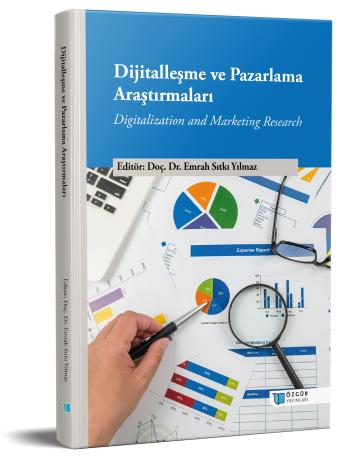
Tedarik Zinciri Bakış Açısıyla Şirketlerin Yeşil Aklama ile Başa Çıkma Stratejileri
Şu kitabın bölümü:
Yılmaz,
E.
S.
(ed.)
2023.
Dijitalleşme ve Pazarlama Araştırmaları.
Özet
Son zamanlarda önemi giderek artan sürdürülebilirlik uygulamaları, ekonomik, çevresel ve sosyal kaygıları birlikte dikkate alan sürdürülebilir bir tedarik zinciri geliştirmeyi, aşağı ve yukarı yönlü tedarik zinciri paydaşlarıyla işbirliğini ve etkin bilgi paylaşımını gerektirmektedir. Ancak firmalar sürdürülebilir olduklarını iddia etseler de çoğu zaman sürdürülebilirliğin çevresel ve sosyal boyutlarını tedarik zincirlerine dahil etmemekte, bu durum da firmaların sürdürülebilirliğe dair stratejik niyetleri ile gerçek eylemleri arasında yeşil aklama veya yeşil yıkama olarak tanımlanan bir boşluğa neden olmaktadır. Bu çalışmada tedarik zinciri bakış açısıyla yeşil aklama kavramı kapsamlı bir biçimde ele alınmaktadır. Bu kapsamda yeşil aklama kavramı, seçici ifşa, ayrışma, sinyal verme ve kurumsal meşruiyet teorileri açısından incelenmekte, firmaların neden yeşil aklama uygulamalarına başvurabileceği ile firma, ürün ve tedarik zinciri düzeyinde yeşil aklama türleri ele alınmaktadır. Çalışmamızda ayrıca kurumsal bağlam, liderlik tarzı, yönetişim, firma büyüklüğü ve firma olgunluk düzeylerinin tedarik zinciri boyunca yeşil aklama vakalarını etkileyen başlıca firma özellikleri olduğu vurgulanmaktadır. Ayrıca tedarik zinciri boyunca yeşil aklama vakalarını önleyecek ne gibi strateji ve uygulamaların benimsenebileceği üzerinde durulmaktadır. Bu bağlamda; firmaların tedarik zincirlerinde oluşabilecek yeşil aklama vakalarının önüne geçilmesinde yeşil tedarikçilerin desteklenmesi ve etik liderliğin kritik bir öneme sahip olduğu, sürdürülebilirlik hedeflerinin öncelikle organizasyon içinde anlaşılması ve uygulanmasını sağlamanın önemi, organizasyonel uyumda üst yönetimin desteğine ek olarak kurum içinde tüm çalışanların katılımını sağlamanın önemi vurgulanmaktadır. Ayrıca yalın bir sürdürülebilirlik organizasyonu oluşturulması ve ilgili tüm iş birimleri arasında sorumluluk paylaşımı yapılmasının tedarik zinciri sürdürülebilirliğini kolaylaştırıcı bir unsur olduğu belirtilmektedir. Sürdürülebilirlik çabalarının organizasyon içinde aşağıdan yukarıya doğru benimsenmesi, hem organizasyon hem de ülke genelinde eğitime ağırlık verilmesi, dahili ve harici işbirliklerine gidilmesi, Kyosei felsefesinden ve yeni nesil teknolojilerden (Blok Zinciri, Büyük Veri, Nesnelerin İnterneti ve Yapay Zeka gibi) yararlanma, hükümet destekleri ve düzenleyici çerçeveyle ESG raporlaması da önerilmektedir.

